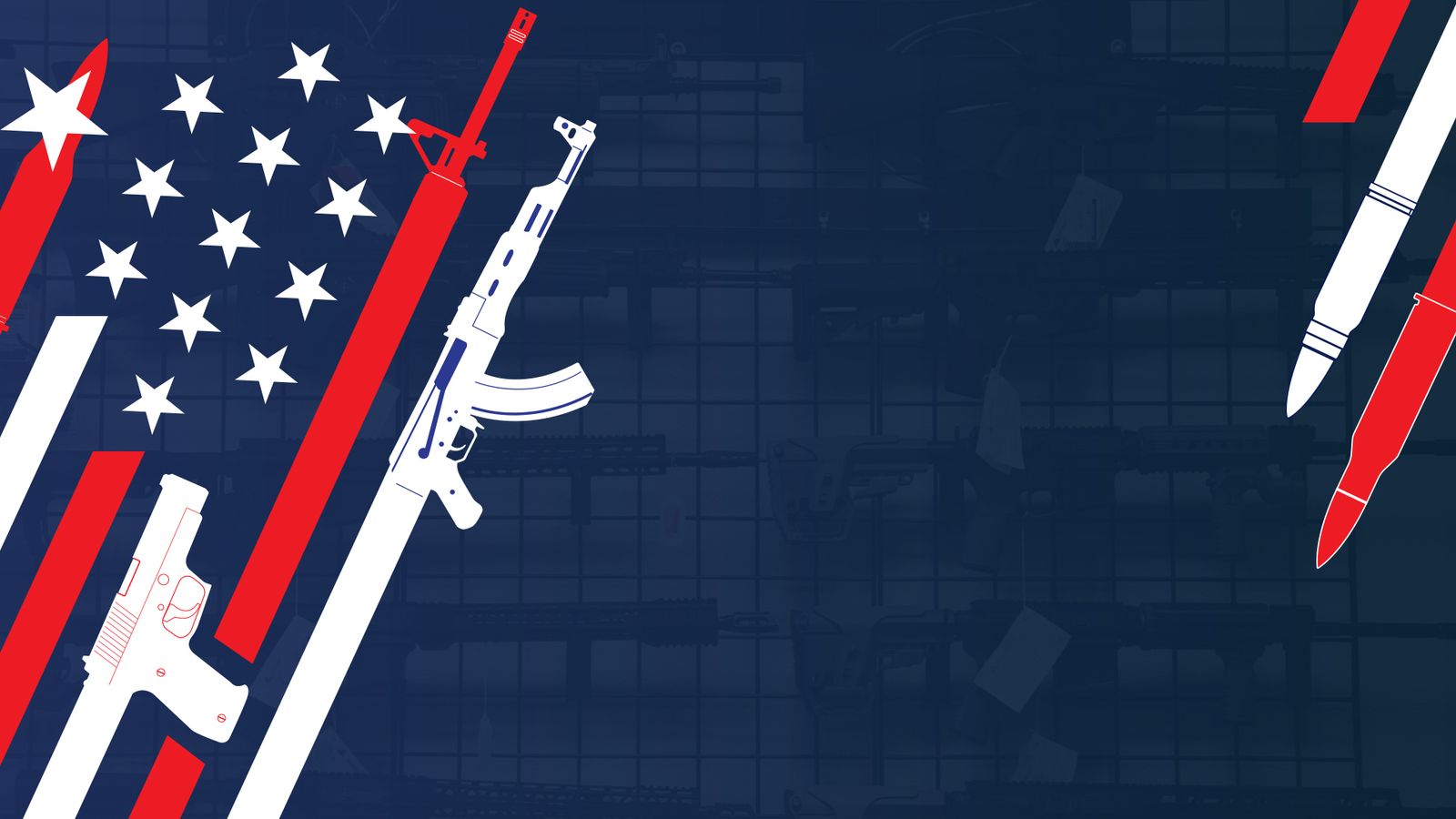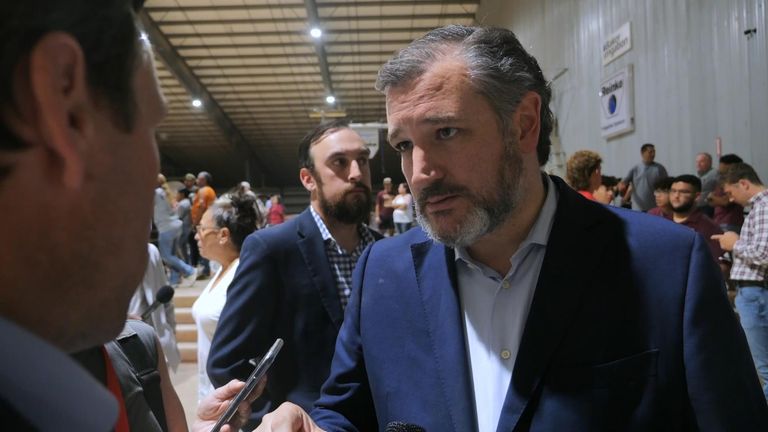Mass shootings in the United States are always followed by desperate calls for gun reform by Democrats, anti-firearms campaigners and victims’ families.
In the wake of Tuesday’s massacre in Uvalde, Texas, which killed 19 pupils and two teachers at Robb Elementary School, President Joe Biden demanded America “turn pain into action” and asked: “When in God’s name are we going to stand up to the gun lobby?”
But the reaction among many Americans who support the constitutional right to bear arms is to buy more, statistics suggest.
Following the Sandy Hook Elementary School shooting in Connecticut in December 2012 that killed 26 people, gun sales nationwide increased three million above predicted levels, according to The Brookings Institute.
In the months after the 2015 San Bernardino terror attack in California in which 14 people died, firearms sales went up by 1.6 million compared to normal levels.
Professor Peter Squires, a criminologist at the University of Brighton, and member of the Gun Control Network, says one of the reasons for this is the fear that high-profile shootings will lead to restrictions on gun ownership.
“Throughout Barack Obama’s presidency (2009-2017), the National Rifle Association (NRA) talked about him being the best gun salesman the US had ever had because there was always this fear he was going to impose bans,” he tells Sky News.
Any societal anxiety can lead to sales spike
But he adds that any “turbulence” in US politics and wider society can lead to increased gun sales.
“It applies to all sorts of insecurities and anxieties that people have. There are spikes after any major disorder – riots, protests – we saw it happen during the COVID pandemic.
“During the Trump regime and increased reports of racism we saw more black women buying guns for the first time to protect themselves.”
The firearms industry has also been known to use mass shootings as a marketing tool, Professor Squires says.
“Following mass shootings in the past, perversely it has appeared as though people want to buy the gun it was carried out with.
“After Sandy Hook, for example, the gun industry started advertising the Bushmaster AR-15 used in the attack as effective at shooting people.”
There are limitations to gun sales data, however.
The figures used by officials are the number of FBI background checks carried out – but not all states use the federal database and do their own checks instead – and not everyone who requests a background check goes on to buy a gun.
People are also increasingly buying guns from unlicensed sellers and over the internet, neither of which will appear in the figures.
Politicians paid for by the NRA
According to the Pew Research Centre, approximately one in three American adults own a gun.
The Small Arms Survey suggests there are 120 firearms for every 100 people – 400 million in total and 20 times the global average of six per 100 people.
After every US gun atrocity, there are calls for background checks to be tightened and certain types of weapons to be banned.
But the group of gun lobbyists, led by the NRA, funding politicians and their campaigns in exchange for votes to protect gun rights, make reform a near-impossible task.
“Lots of people including some NRA members, think background checks should be expanded,” Professor Squires says.
“But when it comes to Congress and the Senate there are too many politicians paid for by the NRA that will block it every day of the week.”
UK and Australia succeed in reform after tragedies
By contrast, countries such as the UK and Australia have succeeded in restricting gun laws after suffering their own tragedies.
Following the Hungerford massacre in Berkshire in 1987, which killed 16 people, semiautomatic guns were banned.
Eighteen months after a gunman killed 17 people in the Dunblane school shooting in 1996, the government banned privately-owned handguns and introduced a strict licensing system.
This has resulted in decreases in the number of deaths caused by gun violence across the UK – from 1.06 per million in 1996 to 0.44 per million in 2019.
Just 12 days after Martin Bryant killed 35 people at Port Arthur in Tasmania, Australia, then-prime minister John Howard announced huge firearm reforms.
He created a licensing system to restrict access, a ban on semiautomatic rifles and shotguns, and country-wide amnesties that took around one in four civilian-owned weapons out of circulation and in turn reduced the number of gun-related deaths significantly.
Commenting on the differences between the US and elsewhere, Professor Squires says: “We talk about America being a gun culture – it’s much more normalised there.
“And the biggest political pressure group is the NRA with four million members – we don’t have anything like that in the UK.”
Read more:
Map reveals scope of American gun violence
Why are US attempts to change gun laws doomed to fail?
US gun debate hits boiling point after Texas school shooting
However, like in the US, reform depends on political mood, he adds.
“Even though we talk about the UK and Dunblane making a difference, there have been gun outrages where nothing has happened.
“It depends on what stage you are in the electoral cycle… Post-Dunblane gun reform was embraced by Tony Blair, who was trying to become prime minister, and who stole the law and order issue from the Tories.
“Ultimately only when there’s political will does change occur.”

